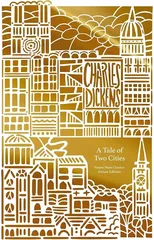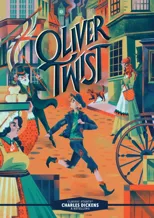A Tale of Two Cities
(Author) Charles DickensLittle treasures, the FLAME TREE COLLECTABLE CLASSICS are chosen to create a delightful and timeless home library. Each stunning, gift edition features deluxe cover treatments, ribbon markers, luxury endpapers and gilded edges. The unabridged text is accompanied by a Glossary of Victorian and Literary terms produced for the modern reader. A complex and profound book, The Tale of Two Cities explores the consequences of tyranny, fate and self-sacrifice. With much of the narrative played out in Paris, during the French Revolution Dickens examines the interplay between personal action, and the flow of history. Dr Manette, having travelled to Paris finds himself imprisoned in the Bastille for 18 brutal years, unable to see his kind and loving daughter Lucy. On his eventual return to London the two of them become witnesses in a treason case against Charles Darney who is accused of giving secrets to the French. Lucy finds a way of exonerating him, Darney falls in love with her and by some strange twist of fate he finally reveals the terrible secret that his own uncle was responsible for Manette's years in the Bastille. Manette is shocked but eventually persuaded by Darney's sincerity and true love for this daughter, so he allows them to marry, bringing happiness finally to them all.
Charles Dickens
Charles Dickens was an English novelist and social critic, born in 1812. He is best known for his vivid characters, intricate plots, and powerful social commentary. Some of his most notable works include "Oliver Twist," "Great Expectations," and "A Christmas Carol." Dickens' writing style often combined humor with pathos, and his works often highlighted the struggles of the lower classes in Victorian England.
Dickens had a profound impact on the development of the novel as a literary form, helping to popularize serial publication and bringing attention to issues of poverty, injustice, and inequality. His most famous work, "A Tale of Two Cities," is a historical novel set during the French Revolution and is considered a classic of English literature. Dickens' legacy continues to resonate today, as his works remain popular and influential in the world of literature.


